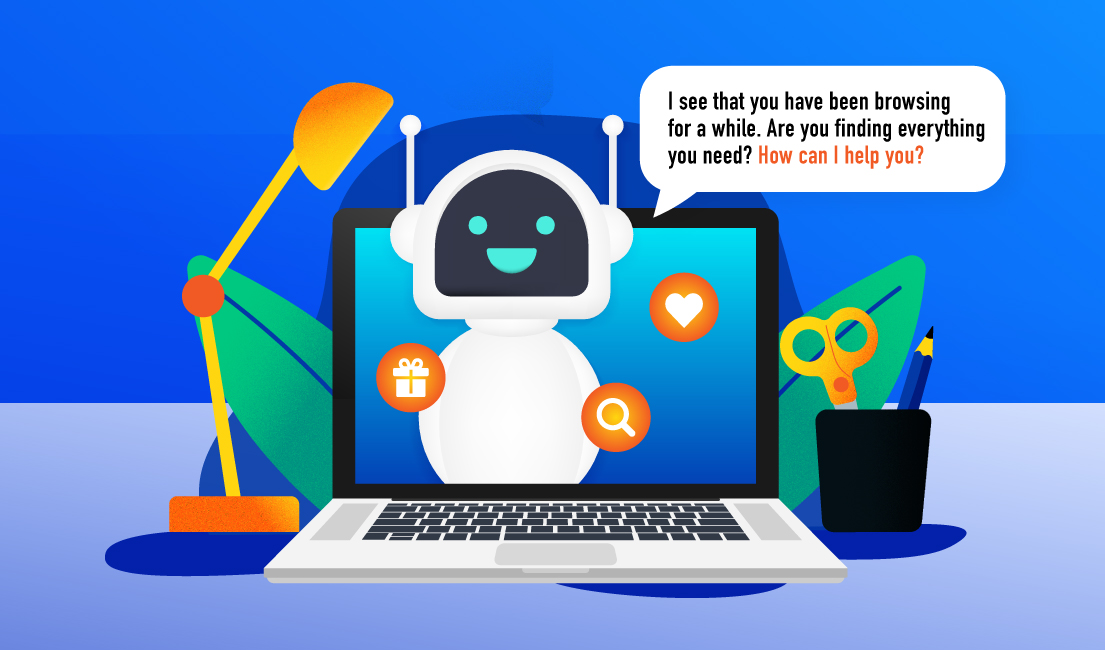Did you know that the average conversion rate on e-commerce sites globally is around 2.6 percent? That says a lot about the immense potential to grow online sales.
One common practice to achieve that growth is through remarketing. Now with advances in artificial intelligence (AI), you can take advantage of methods such as machine learning (ML) to ensure that your remarketing is more effective than ever.
Mike browses on your site and adds a pair of shoes to the shopping cart. He then abandons his cart without actually purchasing anything. As Mike continues his online activity, he is shown an ad promoting the very shoes that he was evaluating, pushing him to go back to your website and complete the purchase. The ad may offer a discount as an incentive. This is classic remarketing.
Remarketing aims to reach interested prospects who have not converted, and retarget them with relevant marketing messages that will entice them to purchase from you. It offers higher return on investment (ROI) because it engages people who have already shown an interest in your product and are hence more likely to convert.
Advertising is not the sole remarketing channel. Brands can re-engage with shoppers through eDMs and in-app notifications as well. The more targeted and relevant your messaging, the more effective your remarketing strategy.
And this is where AI can help.
Boost Retargeting Performance With AI-based Segmentation
Traditional segmentation marketing, on which remarketing is based, has its own drawbacks – it’s difficult to link the right person with the right product, especially after shoppers log out, and even more complex to sift through data on different interests and groups to discern true interest and needs. Campaigns rely heavily on experimentation to see what works, and this can be time-consuming and expensive.
In this context, AI can facilitate better user segmentation.
AI helps optimize remarketing strategies by using ML to interpret data around users’ purchase history and identify patterns that can help predict future purchase behavior.
For instance, an AI-powered audience buying platform like Appier’s CrossX Programmatic Platform uses deep learning algorithms to analyze dozens of user behaviors in real time and predict which users have a higher chance of converting. Marketers can then prioritize retargeting their most valuable users.
Trigger Conversions With Personalized Recommendations
ML can also combine user behavior analysis and product information to generate personalized recommendations, further improving chances of conversion.
Here are some benefits of optimizing remarketing strategy using AI:
Retarget real shoppers for better ROI
ML can distinguish between shopping – actual conversion – and searching (window shopping) behavior, allowing you to retarget users with a higher likelihood of converting. Would you rather remarket to Elle who spends a lot of time browsing online but rarely buys or Patricia who visits an online site when she wants something and buys it?
Capture fast-changing behaviors using machine learning models
ML can identify patterns and predict changes in shopping behavior to make accurate recommendations. For example, Daisy has been browsing coats for a few days, but a sudden change in weather means a warm weekend, and so she searches for a T-shirt on Friday night. ML will give you insights around the short-term change in Daisy’s shopping behavior and recommend T-shirts for her to buy, increasing the possibility of an immediate purchase.
Retarget shoppers with the items they actually want to buy
AI can help you distinguish between serious intent to purchase from a user’s longtime browsing pattern versus something that they just checked out online but are not really interested in.
Offer Value Across the Customer’s Entire Shopping Journey
Remarketing offers value through the customer’s entire purchase journey online. Take a user who books a ticket to Tokyo. Traditional remarketing would target them with flight promotions to different destinations. This offers low value at best and is inaccurate targeting at worst. Once the user has booked their trip to Tokyo, they will next shop around for hotels, tour bookings, etc. And this what remarketing should address.
AI is enabling smarter marketing by making relevant recommendations based on previous purchasing behavior and data across ecommerce sites, expanding the number of products the consumer is exposed to. Marketers can use valuable insights on users’ intentions to retarget them with products that are similar in function, design, etc.
When AI is used to remarket cross screens, this proposition is further strengthened. Cross-screen remarketing allows you to reach your user on every screen they own and shorten the time between initial visit and purchase. And AI-powered platforms like CrossX help reduce the complexity of cross-screen remarketing by giving you insights on who to reach, on what screen, with what message and when.
* AIQUA – Our marketing automation platform runs most-advanced AI models to help you understand and predict your customers’ future behavior. Request your free demo now.



